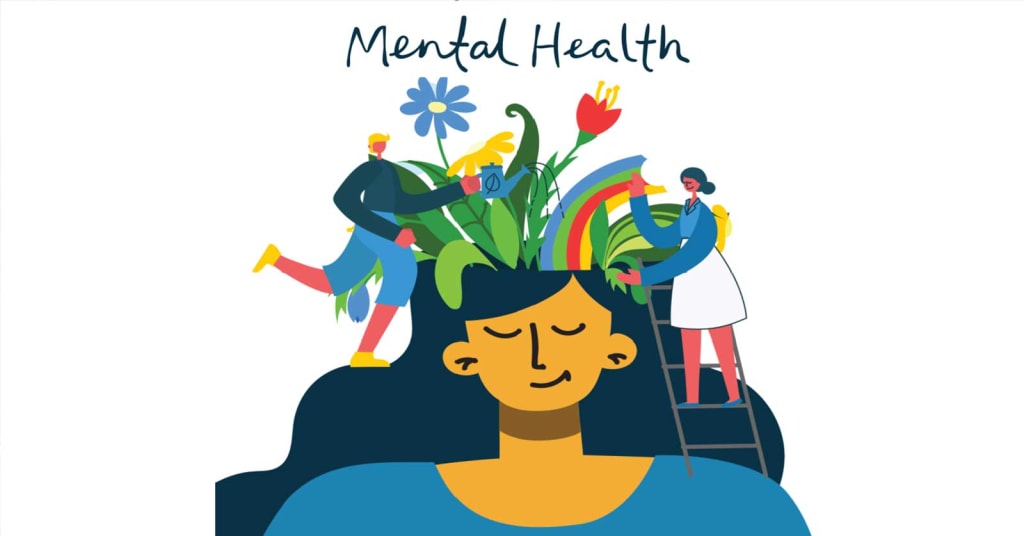Mental Health Matters: Self-Care Practices for a Balanced Life
Self-care?

In today's fast-paced and demanding world, taking care of our mental health is essential for overall well-being. Engaging in regular self-care practices helps to reduce stress, increase resilience, and promote a balanced and fulfilling life. In this article, we will explore the importance of mental health and provide practical self-care practices that can be incorporated into your daily routine. By prioritizing self-care, you can cultivate a positive mindset, improve your emotional well-being, and achieve a greater sense of balance in your life.
Understanding Mental Health:
Mental health encompasses our emotional, psychological, and social well-being. It affects how we think, feel, and act, and influences how we handle stress, make decisions, and relate to others. Recognizing the importance of mental health is the first step toward prioritizing self-care.
Practice Mindfulness:
Mindfulness is the practice of bringing attention to the present moment without judgment. Engaging in mindfulness exercises, such as meditation, deep breathing, or body scans, helps to calm the mind, reduce anxiety, and improve overall mental well-being. Start by setting aside a few minutes each day to focus on your breath and observe your thoughts and sensations without attachment.
Establish Healthy Boundaries:
Setting healthy boundaries is crucial for maintaining emotional well-being. Learn to recognize and communicate your limits, whether it's in relationships, work, or personal commitments. Saying no when necessary and prioritizing your own needs allows you to maintain balance and prevent burnout.
Engage in Physical Activity:
Physical activity has numerous benefits for mental health. Regular exercise releases endorphins, improves mood, reduces stress, and increases overall energy levels. Find an activity that you enjoy, whether it's walking, running, dancing, or practicing yoga, and incorporate it into your routine.
Connect with Nature:
Spending time in nature has a calming and rejuvenating effect on our mental well-being. Take a walk in the park, hike in the mountains, or simply sit and appreciate the beauty of the natural world. Connecting with nature helps to reduce stress, improve focus, and enhance overall mental clarity.
Nurture Meaningful Relationships:
Strong and supportive relationships are essential for mental health. Invest time and effort in cultivating meaningful connections with loved ones. Schedule regular meet-ups, engage in open and honest communication, and offer support to those around you. Sharing joys, challenges, and experiences with others strengthens social connections and provides a sense of belonging.
Engage in Creative Outlets:
Creative outlets, such as painting, writing, playing an instrument, or crafting, can be therapeutic and provide a much-needed escape from daily stressors. Engaging in creative activities allows for self-expression, boosts self-confidence, and promotes relaxation.
Prioritize Quality Sleep:
Adequate sleep is vital for mental health. Establish a consistent sleep routine, create a sleep-friendly environment, and practice relaxation techniques before bed. Aim for 7-9 hours of quality sleep each night to allow your body and mind to rest and rejuvenate.
Practice Gratitude:
Cultivating gratitude has a profound impact on mental well-being. Take time each day to reflect on the things you are grateful for. Start a gratitude journal, write down three things you are thankful for, or express gratitude to someone in your life. Shifting your focus to the positive aspects of life helps to reduce stress, increase happiness, and improve overall mental resilience.
Seek Support:
Remember that seeking support is a sign of strength, not weakness. If you are struggling with your mental health, don't hesitate to reach out to a trusted friend, family member, or mental health professional. They can provide guidance, support, and resources to help you navigate any challenges you may be facing.
Conclusion:
Prioritizing self-care practices is essential for maintaining a balanced and healthy life. By recognizing the importance of mental health, practicing mindfulness, setting healthy boundaries, engaging in physical activity, connecting with nature, nurturing relationships, embracing creative outlets, prioritizing sleep, practicing gratitude, and seeking support when needed, you can enhance your overall well-being and achieve a greater sense of balance and fulfillment. Remember, self-care is not selfish—it is a vital aspect of taking care of your mental health and creating a foundation for a happy and meaningful life. Make a commitment to prioritize self-care and watch as your mental well-being flourishes.





Comments
Andrea Turai is not accepting comments at the moment
Want to show your support? Send them a one-off tip.